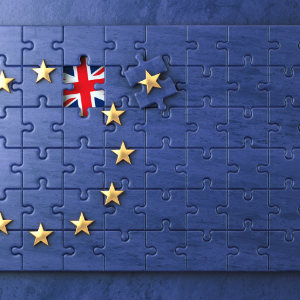
This blog post has been drafted by ShipStation for publication on the ChannelAdvisor blog. All opinions expressed, advice and sources are provided by ShipStation.
Any UK business that’s shipped a product to the EU since 1 January 2021 has likely experienced one or more of the following:
- More paperwork
- Longer delivery times
- Customs charges and duties
- VAT headaches
- Misinformation online or outdated guidance
Dealing with Brexit shipping varies from business to business. Some have abandoned returns policies; others have cut off European customers entirely.
There’s no one-size-fits-all for Brexit trade but there are fundamentals that every business should follow. ShipStation has compiled this blog, with some need-to-know information about Brexit and the impact on shipping.
The Basics of Brexit Shipping
All businesses now need to provide the following information for items to pass smoothly through customs:
- UK EORI Number
- The importer’s EORI Number (if sending to another business)
- Sender and recipient’s name, address and contact details
- Item details (quantity, weight, value and description)
- Country of origin
- Harmonisation code (typically an eight-digit number)
- Recipient VAT number (if applicable)
These specifics are non-negotiable and missing information can lead to delays, fines and additional duties, or failing to clear customs entirely.
Collectively this information tells customs what an item is, its value, where it’s come from and who it’s going to.
For example, an EORI number helps identify the sender, while harmonisation codes are in place to standardise how customs operate across the world.
Getting an EORI number
Gaining an EORI number is simple and applying for one takes minutes via the UK Government’s dedicated portal at gov.uk/eori. Everyone, from sole traders to global enterprises, requires an EORI number if they are sending an item to the EU commercially. The EORI number should start with the letters GB.
Harmonisation codes
Harmonisation codes can be searched for at gov.uk/trade-tariff. Simply describe what the item is and its code, VAT rate, duties and other information comes up.
Customs Forms
Prior to Brexit, businesses didn’t need to worry about customs paperwork for items shipped to the EU. Now they do.
Forms vary slightly depending on the courier.
- Royal Mail and DPD use two types – a CN22 or CN23 form
- DHL, Fedex and UPS use an EDI form
CN22
The CN22 form is used for items with a value up to £270.
CN23
CN23 forms are for items valued above that £270 threshold and require additional accompanying paperwork such as a commercial invoice, appropriate licence or necessary certificates.
EDI forms operate in the same way.
It’s essential to know when a commercial invoice is required on the shipments. Some countries accept electronic commercial invoices, others do not and expect three copies to be included. It’s often better to be safe than sorry.
If using ShipStation to fulfil international orders, customs declarations are equivalent to commercial invoices and the solution automatically populates all the information required.
EU Import VAT
Prior to Brexit, UK businesses didn’t need to worry about EU import VAT on exports to the European Union. Since Brexit, VAT is applied.
This is different to UK VAT. Currently, UK businesses only need to collect VAT on sales after they surpass an £85,000 threshold. These domestic limits do not change, though all businesses should ensure they understand what their UK VAT obligations are.
EU import VAT varies from country to country and its collection depends on how the business operates, the value of the sending item, and the item’s country of origin.
It is important to seek official tax advice when necessary to ensure the business is charging VAT appropriately and meeting its legal requirements in every country that it sells into.
Some Member States do have different thresholds to those outlined in the next section so do check where appropriate what the current rate is if you are going to collect EU import VAT from customers.
Do I need to pay EU Import VAT?
- First, is the item valued less than €22? The item is not subject to EU Import VAT. This threshold may change after 1 July 2021 as currently there are low-value consignment relief thresholds in place.
- Is the item valued between €22 and €150? EU import VAT is due. This is often charged at 20% but can vary from country to country.
- Is the item valued more than €150? EU import VAT is due, and additional import duties may apply. Important: If the item is alcohol, perfume or a specialist product, additional excise duties may apply no matter what the item’s value is. Always check first.
How do I pay EU Import VAT?
There are two ways. One option is often simpler for the seller, but can lead to extra charges for the customer. The other benefits the buyer and ensures there are no nasty surprises for a customer.
-
Leave EU import VAT unpaid
The customer sees the item’s price without VAT. Completing the necessary paperwork and ship. The courier charges the recipient the EU import VAT and releases the item to them.
This can lead to delays at customs, customers refusing to pay and therefore items being stored at a cost or shipped back to the seller. This can cause additional accounting.
-
Collect EU import VAT and pay the courier
As before, the customer sees the item price, but this time VAT at the appropriate rate for that country is added and collected by the seller. Choosing to pay the VAT and other duties to the courier. The buyer pays nothing more. This is often called Delivered Duty Paid (DDP).
Delivered at Place (DAP) or Delivered Duty Unpaid (DDU) is what occurs in scenario one – where to release the item, the customer is asked to pay EU import VAT.
Some marketplaces do provide shipping programmes that simplify this process further by paying EU import VAT on the seller behalf, although using those services come with their own pros and cons – for example, shipping can be more expensive and delivery times are sometimes slower.
Northern Ireland
Northern Ireland has different rules. Businesses shipping to the UK need an additional EORI number starting with XI.
Duties do not apply if they are shipping from Northern Ireland to the Republic of Ireland. The shipment is treated as “intra-community” and not subject to extra charges.
Northern Ireland to Great Britain exports are considered domestic shipments even though they require customs information.
Final Tips for Brexit Shipping
- Detail – it’s better to add too much information than not enough
- Awareness – additional measures may prompt carriers to increase pricing, monitor the situation
- Truth – specifying gift on a customs form is illegal
- Consideration – the more complicated it is for customers, the less likely they will buy
- Patience – shipping will take longer than before Brexit, communicate that carefully






